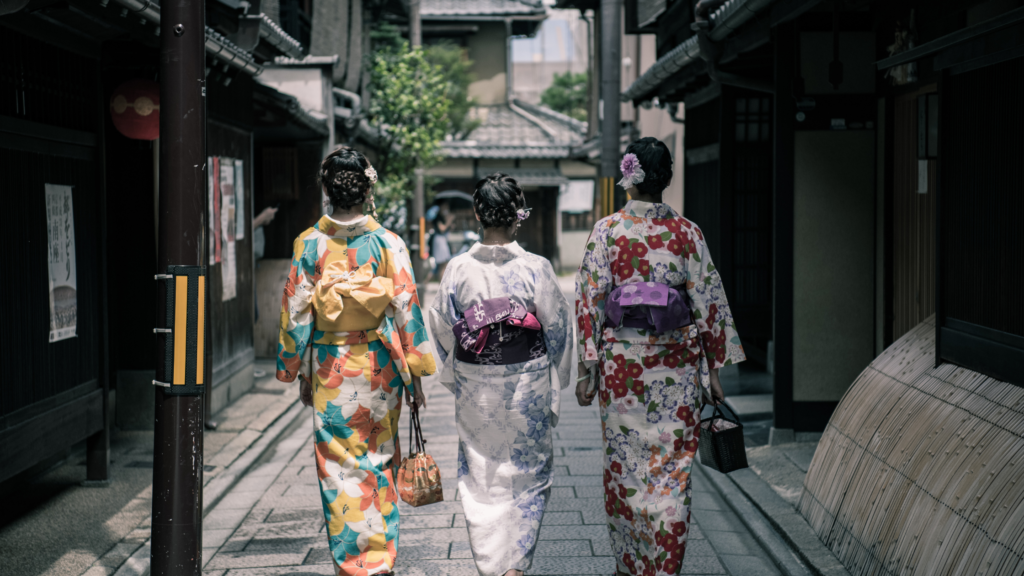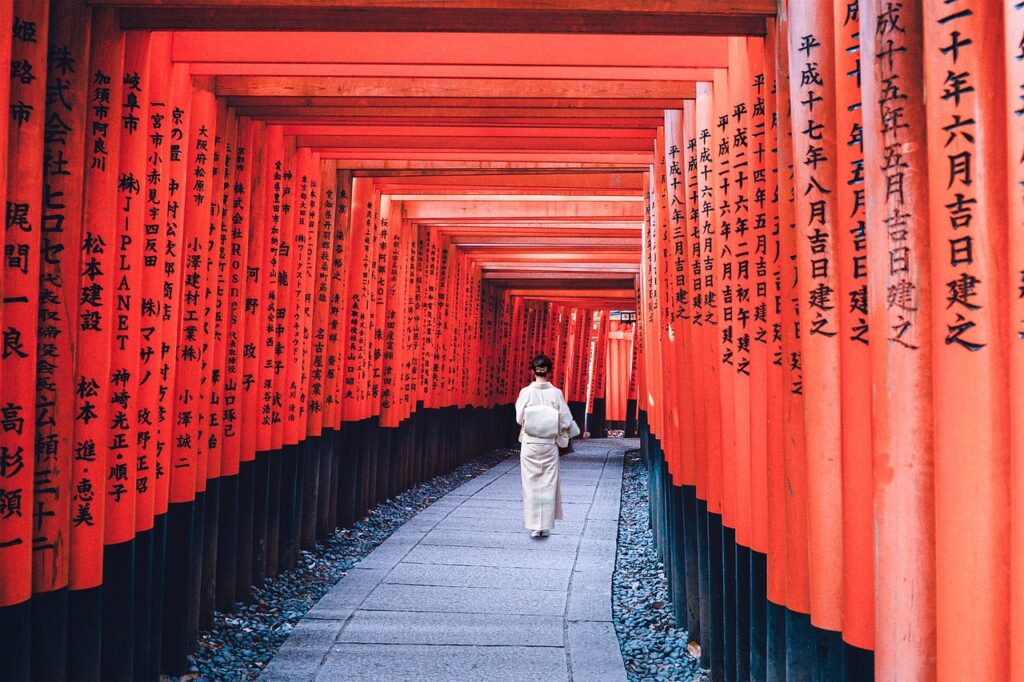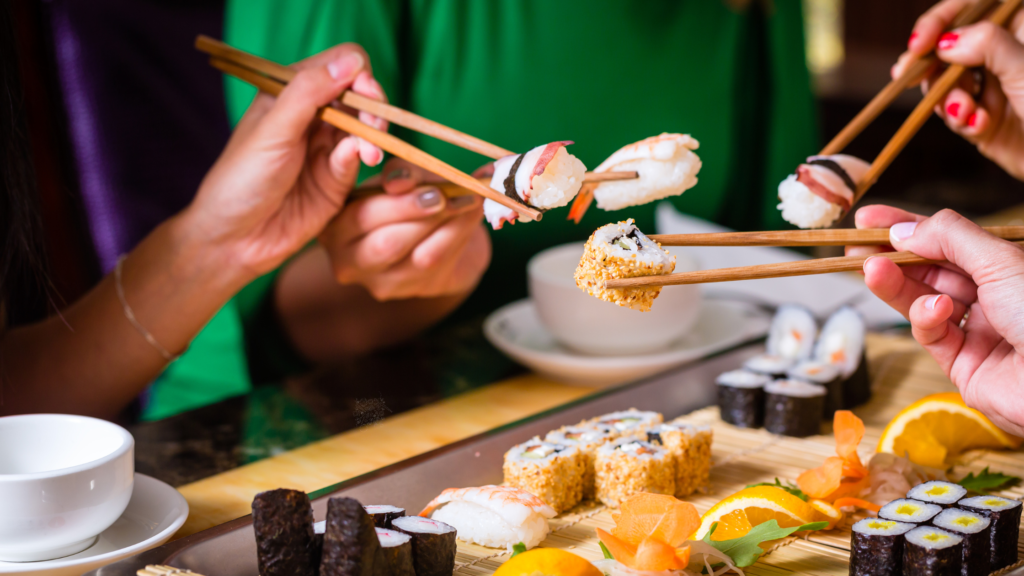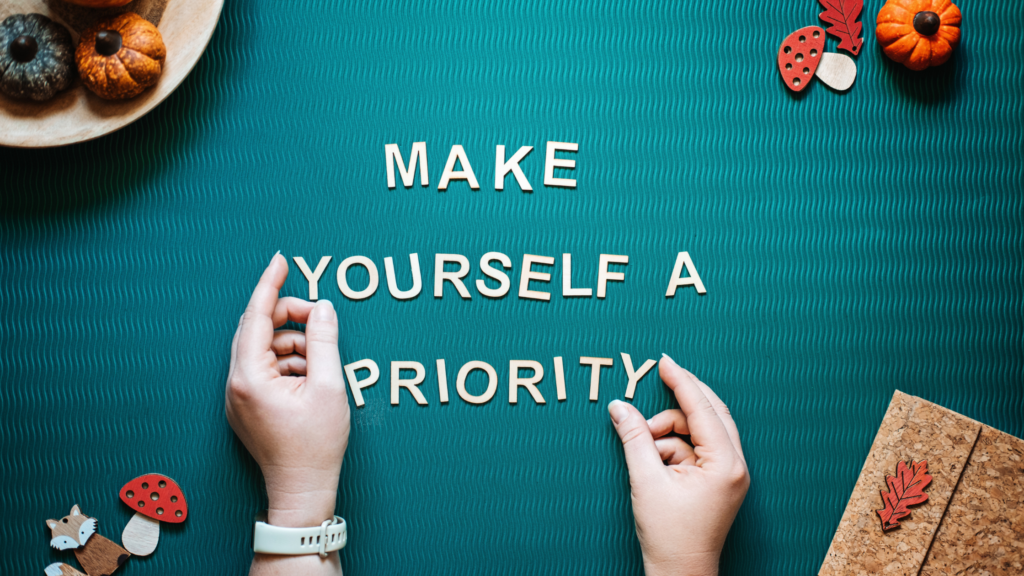
We’ve all been there—feeling stuck in a rut, weighed down by laziness, and unable to muster the motivation to get things done. It’s a frustrating place to be, where even the simplest tasks feel like insurmountable obstacles. That feeling of being unproductive can creep into every part of your life, leaving you with a heavy sense of guilt and a nagging thought that you’re wasting your potential. It’s easy to fall into this cycle, where procrastination becomes a habit, and each day feels like another opportunity missed.
But what if breaking free from this cycle didn’t have to be so hard? What if there were simple, practical ways to reignite your drive and get back on track? Fortunately, Japanese culture, with its rich philosophies and deep understanding of human nature, offers just that. Rooted in centuries of wisdom, these techniques are designed not only to help you overcome laziness but also to build a balanced and fulfilling life. The Japanese approach to life emphasizes harmony, purpose, and steady progress, making it a perfect remedy for those moments when you feel stuck or unmotivated.
Imagine having a set of tools that not only helps you get things done but also makes every day feel meaningful and engaging. Techniques like Ikigai, which encourages you to discover your purpose in life, or Kaizen, which focuses on small, daily improvements, can help you reframe your mindset and create positive habits. These methods aren’t about quick fixes or drastic changes. Instead, they guide you toward steady, sustainable growth—helping you build a life that feels more aligned with your true self.
So, why not give them a try? By incorporating these eight powerful Japanese techniques into your daily routine, you can find your energy, purpose, and drive once again. You’ll discover new ways to tackle laziness head-on and unlock your full potential. Let’s dive in and explore how these timeless practices can transform your life, one step at a time.
1.Ikigai: Discover Your Purpose in Life

Have you ever felt like you’re drifting through life without a clear direction or purpose? That’s where the Japanese concept of Ikigai comes in—a word that means “reason for being.” It’s about finding the unique blend of what you love, what you’re good at, what the world needs, and what you can get paid for. Imagine waking up every morning, excited and driven, because you know exactly why you’re here and what you’re meant to do. That’s the power of Ikigai—it gives your life a deeper meaning and makes every day feel worthwhile.
Finding your Ikigai starts with asking yourself some essential questions. What makes you feel alive and fulfilled? What are your natural strengths, the things you do effortlessly? What problems in the world are you passionate about solving? Reflecting on these questions will guide you toward understanding your unique purpose. Remember, this isn’t about having all the answers right away—it’s a journey of self-discovery, one step at a time.
Why is Ikigai so important? Because it acts like a compass, giving you clarity and direction in everything you do. When you align your actions with your purpose, you start feeling less stressed and more motivated. You see challenges as opportunities for growth, and even on difficult days, you feel a sense of satisfaction knowing you’re on the right path. Your Ikigai helps you stay focused on what truly matters, cutting through the noise and distractions of everyday life.
Start discovering your Ikigai by exploring new interests, talking to inspiring people, and paying attention to what excites you. Don’t be afraid to step out of your comfort zone and try new things. Every experience, good or bad, teaches you something valuable about yourself and brings you closer to your purpose. Remember, Ikigai is not a destination—it’s a continuous journey of growth and self-awareness, one that makes every moment of life richer and more meaningful. Start your journey today and see how it transforms your life.
2.Kaizen: Focus on Small Improvements Every Day

Feeling overwhelmed by big goals can often make you feel stuck, but there’s a powerful Japanese concept that can help—Kaizen. This simple yet transformative idea focuses on making small, daily improvements that add up over time. Instead of aiming for massive changes overnight, Kaizen encourages you to take tiny, manageable steps toward progress. Think of it as planting a seed every day that, over time, grows into a lush, thriving garden. This approach keeps you moving forward, even when motivation feels low.
The beauty of Kaizen lies in its simplicity. It’s not about perfection or grand gestures; it’s about consistent, incremental change. Imagine committing just five minutes a day to a new skill, a short walk, or a few pages of a book. Those five minutes might seem insignificant in the moment, but they build momentum and form habits that can transform your life over time. With Kaizen, every little action counts, and nothing is too small to make a difference.
Why does Kaizen work so well? Because it removes the pressure of big expectations. When you focus on tiny improvements, you’re less likely to feel overwhelmed or paralyzed by fear of failure. Instead, you create a cycle of positive reinforcement, where small wins motivate you to keep going. This process builds confidence and encourages you to take on bigger challenges without even realizing it. The more you practice Kaizen, the more progress you make, one small step at a time.
Start applying Kaizen by choosing a single area in your life where you’d like to see improvement. Break it down into the smallest possible actions you can take daily—like writing one sentence, doing a five-minute workout, or tidying up one corner of your room. As you keep moving forward with these small steps, you’ll notice a shift in your mindset. You’ll begin to see change as a series of easy, doable actions rather than daunting tasks. This is how Kaizen makes growth feel achievable and exciting, rather than intimidating.
Remember, with Kaizen, the goal is not to rush or force change but to embrace a mindset of continuous improvement. Celebrate every little victory, no matter how small it may seem. Each tiny step is a step forward, bringing you closer to the bigger picture of your goals and dreams. Keep moving forward, day by day, and watch how these small improvements lead to significant, lasting transformation in your life.
3.Hara Hachi Bu: Practice Moderation in Eating

Have you ever noticed how a heavy meal can leave you feeling sluggish, tired, and ready for a nap? It’s not just in your head; there’s a reason behind it. The Japanese practice of Hara Hachi Bu offers a simple but powerful approach to eating that keeps you feeling light, energetic, and ready to tackle whatever comes your way. The phrase Hara Hachi Bu translates to “eat until you are 80% full,” and it’s a principle that can transform not only how you eat but also how you feel throughout the day.
By eating until you are just 80% full, you avoid that uncomfortable feeling of being stuffed and weighed down. This practice encourages mindful eating—being aware of what you’re putting into your body and stopping when you’re satisfied, not stuffed. When you stop before feeling completely full, you give your body time to register its actual hunger level, preventing overeating and promoting better digestion. It’s a way of respecting your body’s natural cues and finding balance in your relationship with food.
But Hara Hachi Bu is more than just a dieting trick; it’s about embracing a healthier, more mindful way of living. When you eat with moderation, you maintain steady energy levels throughout the day, avoiding those post-meal crashes that make you feel like crawling back into bed. It also helps you feel more alert, focused, and motivated, making it easier to stay productive and achieve your goals. Imagine feeling light and energized after every meal, ready to jump back into your day with enthusiasm!
Adopting Hara Hachi Bu can also have long-term benefits for your health. It promotes better digestion, helps in maintaining a healthy weight, and can even reduce the risk of chronic diseases like heart disease and diabetes. By practicing moderation, you are taking a small but significant step towards a healthier lifestyle. It’s about enjoying your food without overindulging, savoring every bite, and finding satisfaction in knowing you’ve nourished your body in a balanced way.
To get started with Hara Hachi Bu, pay attention to your hunger cues and try eating a bit more slowly. Take a moment between bites to enjoy the flavors and listen to your body. You’ll find that you feel satisfied with less food and more in tune with your body’s needs. It’s a simple change, but one that can make a big difference in how you feel every day. Remember, moderation is key—not just for your physical health, but for your mental and emotional well-being too.
Give Hara Hachi Bu a try, and see how this mindful approach to eating can make you feel more energetic, balanced, and in control of your daily life. It’s not about denying yourself pleasure but finding joy in eating just enough, leaving you feeling lighter and more vibrant. Let moderation be your guide, and experience how a little change at the dinner table can lead to big changes in how you live your life.
4.Ganbaru: Stay Persistent, No Matter What

Life can often feel like an uphill climb, with obstacles popping up when you least expect them. That’s where the Japanese concept of Ganbaru comes in—a term that means to stay persistent, no matter what. Ganbaru isn’t just about doing your best when things are easy; it’s about pushing forward when things get tough, holding on to your determination, and not giving up, even when the odds seem stacked against you. It’s a mindset that transforms challenges into opportunities for growth.
Ganbaru teaches us that it’s okay to struggle; what matters is that you keep going. Think of it as embracing the grind, knowing that the journey itself is valuable, no matter the outcome. We all face moments when giving up seems tempting, but Ganbaru reminds us that perseverance is where real strength lies. It’s about showing up, even when the going gets tough, and understanding that effort counts just as much as results. You don’t have to be perfect or win every time—what matters is that you don’t quit.
Imagine you’re climbing a steep mountain. You might slip, stumble, or feel exhausted along the way. But each step you take, however small, brings you closer to the top. That’s the spirit of Ganbaru—it’s not about how fast you climb or how smoothly the journey goes; it’s about continuing the climb, no matter what. This attitude builds resilience, helps you face setbacks with courage, and keeps you moving forward, one step at a time.
Ganbaru can be applied to any area of your life, whether it’s working toward a career goal, developing a new skill, or overcoming a personal challenge. When you commit to a Ganbaru mindset, you start to see obstacles differently—not as things to avoid but as chances to grow stronger. Every challenge becomes a test of your character, a way to prove to yourself just how much you’re capable of achieving when you refuse to give up.
This philosophy is powerful because it acknowledges that life isn’t always easy or fair. Ganbaru doesn’t promise instant success or smooth sailing; instead, it offers the deep satisfaction that comes from knowing you gave your all. It’s about trusting the process and understanding that persistence pays off in ways you might not immediately see. You learn patience, build confidence, and develop an unshakeable belief in your ability to endure and thrive.
To practice Ganbaru, start by setting clear, meaningful goals and breaking them into small, manageable steps. When you hit a roadblock, remind yourself why you started in the first place. Visualize your end goal, but also appreciate the progress you’re making along the way. Celebrate the small wins and learn from the setbacks. The key is to keep going, even when things don’t go as planned, and to find strength in the effort itself.
Remember, Ganbaru is not just about reaching the finish line—it’s about building the strength to keep moving forward, no matter what. Embrace this spirit of persistence, and you’ll find that you’re stronger, braver, and more capable than you ever imagined. Let Ganbaru be your guide through life’s challenges, and watch as you turn every obstacle into an opportunity for growth and success.
5.Wabi-Sabi: Embrace Imperfection and Find Beauty in It

In a world obsessed with perfection, the Japanese philosophy of Wabi-Sabi offers a refreshing perspective—finding beauty in imperfection. Wabi-Sabi is about embracing the flaws, the cracks, and the imperfections that make life truly unique and beautiful. It teaches us that nothing in life, including ourselves, needs to be flawless to have value. Instead of striving for perfection, Wabi-Sabi invites us to see the charm in the things that are worn, aged, or broken. It’s a celebration of life’s natural imperfections, reminding us that everything is in a state of constant growth and change.
Think about a handmade ceramic bowl with a crack running through it. The crack doesn’t make the bowl worthless; it gives it character, a story, a history. The same goes for us. Our scars, our mistakes, and our setbacks are not things to be ashamed of; they are what make us human. Wabi-Sabi encourages us to accept these flaws as part of our journey. It’s a call to stop waiting for everything to be perfect before we act, create, or love. By embracing imperfection, we allow ourselves to live more fully, more authentically, and more courageously.
When we apply Wabi-Sabi to our daily lives, we start seeing beauty in places we never noticed before. The chipped paint on an old chair, the wrinkles in a well-worn smile, or the uneven lines in a handwritten note—all of these things hold a unique charm and story. They remind us that beauty is not found in flawless symmetry but in the textures and layers that life adds over time. By accepting this, we free ourselves from the exhausting pursuit of perfection and learn to appreciate things as they are.
Adopting a Wabi-Sabi mindset can change how you feel about yourself and others. It helps you to be kinder, more compassionate, and less judgmental. You begin to see that everyone, including yourself, is a work in progress, constantly growing and evolving. It also means finding peace in the present moment, letting go of the need for everything to be “just right.” You realize that life’s beauty lies in its unpredictability, its messiness, and its raw, unpolished edges.
Living with Wabi-Sabi is about embracing all parts of life—the ups, the downs, the smooth moments, and the rough patches. It’s a gentle reminder that it’s okay to be a little rough around the edges, a little unfinished, and a little imperfect. By accepting and loving yourself as you are, you open the door to more meaningful connections and experiences. You stop hiding behind the fear of not being enough and start showing up as your true self, unfiltered and unafraid.
So, how can you bring more Wabi-Sabi into your life? Start by letting go of unrealistic expectations and allowing yourself to make mistakes. Appreciate the little things—the mismatched socks, the scratched-up furniture, the laughter lines around your eyes. Each of these holds its own story, its own beauty. Focus on progress, not perfection, and find joy in the journey rather than the destination.
Embrace Wabi-Sabi and see how it changes your perspective. Let it remind you that you are enough, just as you are, with all your quirks, flaws, and unique traits. Life doesn’t have to be perfect to be wonderful; sometimes, it’s the imperfections that make it truly extraordinary.
6.Shoshin: Approach Tasks with a Beginner’s Mindset

Sometimes, we fall into laziness not because we lack motivation, but because we think we already know it all. This sense of knowing everything or fear of looking inexperienced can make even the simplest tasks feel like a chore. That’s where Shoshin, or the “beginner’s mind,” comes into play. Shoshin is about approaching every task with the fresh eyes of a beginner—full of curiosity, openness, and a genuine eagerness to learn. It’s a reminder that no matter how much we think we know, there is always something new to discover.
When you adopt a Shoshin mindset, you shift your focus from being an expert to becoming an explorer. You start to see each task, no matter how repetitive or mundane, as an opportunity to learn something new or experience it differently. This approach reduces the fear of failure or judgment and makes tasks feel less intimidating. You become more open to trying new methods, asking questions, and even making mistakes—because mistakes are just another way to learn and grow.
Think about the last time you tried something for the very first time. Remember that excitement, the curiosity, and even the joy of not knowing what to expect? That’s the magic of the Shoshin mindset. It brings back that childlike wonder where every experience is an adventure, and every step is an opportunity to grow. Instead of dreading challenges, you begin to embrace them, seeing them as fun puzzles waiting to be solved. Even when you stumble, you understand that each misstep is simply part of the learning process.
Shoshin also helps to keep your ego in check. When you approach tasks with humility, acknowledging that there’s always more to learn, you stay grounded and focused. You’re not weighed down by the pressure of proving yourself or showing off what you already know. Instead, you find joy in the learning journey itself. This mindset allows you to remain adaptable, flexible, and open to new perspectives, keeping you engaged and motivated.
To cultivate Shoshin in your daily life, start by asking yourself, “What can I learn from this?” even in the most familiar situations. Whether you’re working on a project you’ve done a hundred times or facing a new challenge, approach it with the mindset of a beginner. Ask more questions, stay curious, and don’t be afraid to dive into the unknown. Remind yourself that expertise is not the end goal; growth and discovery are.
Adopting a Shoshin mindset can make a huge difference in how you handle everyday tasks. Instead of feeling bored or complacent, you find excitement and interest in even the smallest things. You become more creative, more innovative, and more willing to step out of your comfort zone. Life becomes less about checking off tasks and more about enjoying the experience, finding joy in the process, and savoring every moment of learning.
So, the next time you catch yourself thinking you already know how things will go, pause and embrace Shoshin. Let yourself be a beginner again. See each task as a chance to learn, grow, and experience life with fresh eyes. You’ll find that this simple shift in perspective can reignite your passion, spark your creativity, and turn even the most mundane tasks into exciting adventures.
7.Shinrin-Yoku: Reconnect with Nature to Refresh Your Mind

In our fast-paced, technology-driven world, it’s easy to feel overwhelmed, drained, and disconnected from ourselves. That’s where the Japanese practice of Shinrin-Yoku, or “forest bathing,” comes in. But don’t let the name fool you—it’s not about taking a literal bath in the woods. Instead, Shinrin-Yoku is all about immersing yourself in nature, slowing down, and allowing your senses to soak up the sights, sounds, and smells of the natural world. It’s a simple but powerful way to refresh your mind, reduce stress, and find a sense of calm and clarity.
Studies have shown that spending time in nature can lower cortisol levels, reduce anxiety, and improve overall mental health. Just a short walk among trees, listening to the rustle of leaves or the chirping of birds, can instantly lift your mood and clear your mind. When you practice Shinrin-Yoku, you give yourself permission to unplug from the digital noise and reconnect with something much more grounding—the beauty and peace of the natural world. It’s like hitting a reset button for your mind and soul.
Imagine taking a slow, mindful stroll through a lush forest, feeling the crunch of leaves underfoot, and breathing in the fresh, earthy air. As you walk, you notice the intricate patterns on the bark of the trees, the way sunlight filters through the leaves, and the gentle rhythm of a nearby stream. Each step, each breath, brings you deeper into the present moment, calming your racing thoughts and bringing you a sense of peace. This is the essence of Shinrin-Yoku—finding serenity in simplicity and reconnecting with what truly matters.
You don’t need to live near a forest to practice Shinrin-Yoku. It can be as simple as a visit to a local park, a quiet garden, or even your backyard. The key is to be fully present, to slow down, and to engage all your senses. Leave your phone behind, breathe deeply, and notice the little details—the colors of the flowers, the texture of the grass, the warmth of the sun on your skin. Let nature remind you of its gentle rhythm and flow, and allow that to soothe your mind.
Shinrin-Yoku isn’t just about relaxation; it’s about renewal. When you step away from the hustle and bustle of daily life and immerse yourself in nature, you create space for new ideas, fresh perspectives, and creativity. You come back to your daily tasks feeling rejuvenated, more focused, and better equipped to handle whatever comes your way. Nature has a way of reminding you of the bigger picture and grounding you in a sense of purpose and calm.
So, the next time you feel overwhelmed or stuck, try practicing Shinrin-Yoku. Step outside, take a deep breath, and let nature work its magic. It doesn’t have to be a long trip—just a few minutes can make a difference. Reconnect with the natural world, and you’ll find that it reconnects you to yourself, refreshing your mind, lifting your spirit, and bringing a sense of peace that you can carry with you throughout your day.
8.Kakeibo: Manage Your Finances Mindfully

Money can often feel like a constant source of stress, but what if there was a way to make managing it simpler and more mindful? Enter Kakeibo, the Japanese art of budgeting that is all about being conscious and intentional with your finances. Kakeibo, which means “household finance ledger,” is more than just keeping track of expenses; it’s a philosophy that encourages you to reflect on your spending habits, set meaningful goals, and find a sense of balance and peace with your money.
With Kakeibo, you start by asking yourself four essential questions: How much money do you have? How much would you like to save? How much are you spending? How can you improve? These questions guide you to think about your finances more deeply, making you aware of where your money is going and why. By doing this, you begin to notice patterns and behaviors that might be holding you back, empowering you to make better choices and avoid impulse buys or unnecessary spending.
Unlike traditional budgeting methods, Kakeibo is all about mindfulness. It encourages you to take a few moments each week to sit down, write things out, and reflect on your spending habits. This process is not about strict rules or denying yourself what you love, but about creating a financial plan that aligns with your values and goals. It’s about asking yourself, “Do I really need this?” and “How will this purchase benefit me in the long run?” It turns money management into a thoughtful practice, rather than a stressful chore.
Practicing Kakeibo can also help you feel more in control of your life. When you know exactly where your money is going, you feel less anxious and more secure. You start to see your finances as a tool to support your goals and dreams, rather than a source of worry. By setting aside money for savings, investing in experiences that bring you joy, and eliminating wasteful spending, you create a sense of balance that makes your financial life feel much more manageable.
To get started with Kakeibo, grab a notebook and start writing down your income, expenses, and savings goals. Break your spending into categories like needs, wants, culture, and unexpected expenses. At the end of each month, review your spending and reflect on where you can improve. Ask yourself what went well, what could be better, and how you can make small adjustments to move closer to your goals. This simple practice can bring clarity and confidence, turning financial stress into a sense of empowerment.
Kakeibo isn’t just about saving more money; it’s about creating a mindset of intentional spending and purposeful living. It helps you prioritize what truly matters, cut out the noise, and make every dollar count. Give Kakeibo a try, and see how managing your finances mindfully can help you live a more balanced, fulfilling life.
Laziness can feel like an unbreakable cycle, but these eight Japanese techniques offer a way out by transforming how you approach life. From discovering your purpose with Ikigai to making small, daily improvements with Kaizen, these methods provide practical steps to help you find motivation and meaning. They remind you that growth doesn’t always require drastic changes—sometimes, it’s the simple, everyday actions that make the most impact.
By practicing Hara Hachi Bu, you learn to enjoy life in moderation, staying energized and balanced throughout your day. With Ganbaru, you cultivate a mindset of persistence, pushing forward even when things get tough. Embracing Wabi-Sabi helps you see the beauty in imperfection, encouraging you to let go of unrealistic standards. Adopting a Shoshin mindset keeps you curious and open, making every task feel like a new adventure.
Whether it’s reconnecting with nature through Shinrin-Yoku or managing your finances mindfully with Kakeibo, each technique offers a unique way to enrich your life. They are not quick fixes but lifelong habits that build resilience, foster creativity, and bring joy to your everyday experiences.
Start incorporating these techniques into your life today and see the changes unfold. Remember, it’s not about being perfect; it’s about finding what works for you and making progress, one step at a time. These small shifts in mindset and behavior can lead to profound transformations, helping you break free from laziness and move toward a more purposeful, fulfilling life. Embrace these practices and discover a path to a more vibrant, energized, and intentional life.
